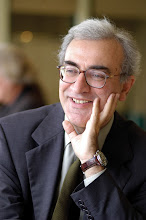
Philip Blond escreve no FT acerca de uma recente declaração de George Osborne, Chanceler do Tesouro no governo-sombra dos conservadores britânicos:
Mr Osborne could not have been clearer; he repudiated laisser faire economics and the libertarian philosophy that licensed its practice. He rightly extolled the virtues of markets and capitalism but also made three crucial moves to distance his party from the now clearly bankrupt ideology of the free-market fundamentalists.E, a concluir:
First, he denied neo-liberalism’s foundational premise: the efficient markets hypothesis. Far from prices accurately representing all relevant information, he argued, they do not, probably never will and, even if they did, people would still not respond rationally.
Second, the shadow chancellor argued that since markets misprice risk and are prone to speculative bubbles, there is a need for effective regulation. He proposed both counter-cyclical capital requirements and the return of full discretionary macro-regulatory oversight to the Bank of England.
Finally, Mr Osborne argued that banks that are too big to fail should be broken up. In so doing, he rejects the neo-liberal and Chicago school-inspired dictum that market-generated monopolies are the most efficient distributor of resources and price utility.
Since markets are essentially amoral, it follows that they should be directed by a moral account of what we want them to achieve. Mr Osborne has begun to create the political economy that Mr Cameron has been arguing for. Markets are not the end of conservatism, just one of the means by which conservative ends are realised.Ele há gente que não está a dormir.
.




Sem comentários:
Enviar um comentário